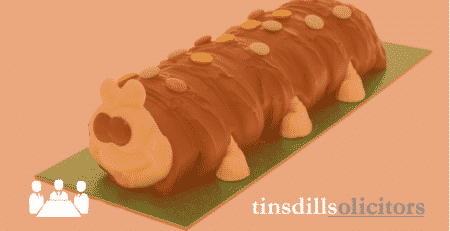A Quick Guide To: Discretionary Trusts
What is a trust?
A trust is created when assets are transferred to other parties to hold and safeguard for the benefit of others. There are a number of different types of trust but this guide deals only with discretionary trusts.
The main parties involved with a trust are as follows:
Settlor
This is the person who establishes the trust and transfers the assets into the trust. This can be done during the Settlor’s lifetime through establishing a Trust Deed, or upon the Settler’s death through a Will.
Trustees
Trusts are typically administered by between 1 and 4 trustees who are initially chosen by the Settlor. The trustees hold the trust assets, decide on distributions of income and/or capital to the potential beneficiaries, and they are also responsible for the management of the trust assets, record and account keeping and tax compliance. The trustees must act within the terms of the trust, as set out in the Trust Deed, and should act impartially.
In a discretionary trust, the trustees have significant responsibility attached to their role and therefore great care should be taken in selecting trustees to ensure that they will carry out their duties correctly and with integrity.
Modern trust and tax law can be complex, and many people are reluctant to become involved in decisions that require not only a technical understanding, but also an independent detachment from family dynamics, and this means that independent or professional trustees are often chosen.
The trustees are often guided by a Letter of Wishes left by the Settlor of the trust to give some guidance about the objectives the Settlor had in mind when establishing the trust, and some principles to apply to the exercise of their discretion. The trustees are not bound by this Letter of Wishes and are able to exercise their discretion as circumstances require.
Beneficiaries
In a discretionary trust, no beneficiary has any right to a particular share of the trust fund. Instead, the Settlor creates a class of potential beneficiaries who can benefit from the trust, and it is up to the trustees to decide which beneficiaries receive funds from the trust, how much and when.
A discretionary trust can provide flexibility, control and protection from a variety of potential third party threats to beneficiaries, for example, poor decision making, relationship breakdown, financial difficulties, premature death and undue influence from third parties.
Inheritance Tax
Discretionary trusts come within the HMRC definition of “Relevant Property Trusts” which means that they are subject to inheritance tax, even during the Settlor’s lifetime.
A gift into a discretionary trust, when added to any previous gifts in relevant property trusts, that exceeds the nil rate band (currently £325,000.00) will cause an immediate charge to inheritance tax on the excess over the nil rate band. The charge is 20% if the tax is paid by the trustees of the trust or 25% if paid by the Settlor.
Once the value of the discretionary trust is in excess of the nil rate band then the trust is also subject to 10 year anniversary charges. The trust assets would be valued on the 10 year anniversary and a tax charge of a maximum rate of 6% of the trust is levied on the value over the nil rate band.
There can also be time apportioned “exit” charges on capital distributed out of the trust, again when the value is in excess of the nil rate band.
Due to the complexity of the tax regime that relates to trusts, we strongly recommend that you seek accountancy advice and assistance when dealing with a trust.
Income Tax and Capital Gains Tax
The trustees are responsible for paying any tax payable on income that is received by the discretionary trust. The discretionary trust pays income tax at the additional rate of 45% (38.1% for dividend income) once the standard rate of £1,000.00 of income has been exceeded. Any income falling within the standard rate band of £1,000.00 is taxed at the basic rate of 20% (or 7.5% for dividend income).
Any income that is distributed to beneficiaries carries a 45% tax credit and some or all of it may be available for a tax reclaim by the beneficiary.
The trustees may also have to pay capital gains tax if they make a chargeable disposal of trust assets.
Discretionary trusts have an annual exemption for capital gains tax, however this is usually capped at 50% of the capital gains tax allowance for an individual.
Changing Trustees and adding Beneficiaries
When setting up the trust, the Settlor will normally retain the ability to decide how changes to the trustees are dealt with, and also whether beneficiaries can be added or removed.
Each Settlor will reach their own conclusions as to the best way of setting up their trust. It is quite common for the Settlor of the trust to retain the ability to appoint additional trustees during their lifetime, and also add or remove potential beneficiaries from the trust. After the death of the Settlor, the trustees will usually have the power to appoint new trustees, but they may or may not be given the power to add and remove beneficiaries.
The detail in relation to these questions will be decided by the Settlor and will be contained within the trust deed itself.
Contact us:
For more information on discretionary trusts contact Tinsdills’ highly experienced Wills, Trusts and Probate department today.




